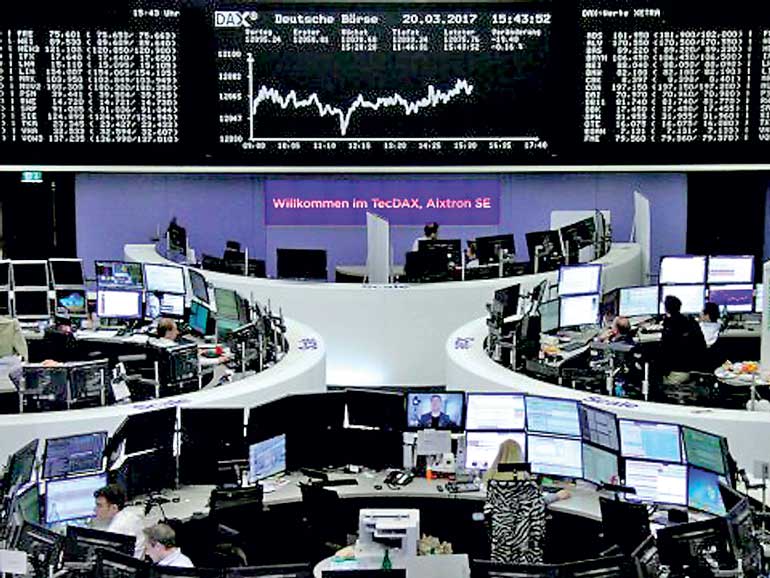Tuesday Feb 24, 2026
Tuesday Feb 24, 2026
Tuesday, 24 October 2017 00:00 - - {{hitsCtrl.values.hits}}

London (Reuters): Japanese Prime Minister Shinzo Abe’s convincing election victory lifted the Nikkei to its highest in 21 years and world stocks to an all-time high on Monday, despite an escalation of Spain’s constitutional crisis that weighed on the country’s banks.
Fresh optimism about tax cuts in the United States had pushed Wall Street to a new record on Friday, while President Donald Trump indicated that the re-appointment of Federal Reserve Chair Janet Yellen was still a possibility.
European shares traded slightly lower, with Madrid’s bourse underperforming its peers as the ongoing crisis in Catalonia continued to take its toll.
The pan-European STOXX 600 was down 0.1% while Spain’s benchmark IBEX fell 0.7%, with banks taking the most points off the index.
Madrid took the unprecedented step of firing the government of the restive Catalan region on Saturday in a last resort to thwart its push for independence and to calm fears of unrest and economic turmoil in the heart of the euro zone.
But the euro eased only a modest 0.2% to $1.1758 as investors bet Spain’s political strife will not spread to other countries.
“At this moment you’ve not got contagion from Spain to the broader European market. It’s seen as a national and localised issue,” said Pierre Bose, head of European equities strategy at Credit Suisse.
Euro zone borrowing costs fell as Abe’s big win gave the green light for a continuation of Japan’s hyper-easy monetary policy, in a reassuring sign for world bond markets.
Markets are bracing for the European Central Bank to signal baby steps away from its ultra-easy monetary policy stance this week and for the U.S. Federal Reserve to hike rates in December.
German Bund futures were up 0.1%.
“Now there’s a renewed mandate for quantitative easing, which means a weaker yen and stronger Japanese government bond prices. It also has a significant spillover for other developed markets,” said Peter Chatwell, head of euro rates strategy at Mizuho.
Dollar strength
The U.S. dollar was the major beneficiary as President Donald Trump and Republicans took a small step toward tax cuts, boosting Wall Street stocks and lifting bond yields.
The dollar rose 0.2% to 113.77 yen and briefly touched its highest since mid-July at 114.09. Against a basket of currencies, the dollar edged up 0.1%.
The Dow ended Friday with gains of 0.71%, while the S&P 500 rose 0.51% and the Nasdaq 0.36%.
Japan’s Nikkei raced up 1.1% to its highest since 1996, lifting the MSCI All-Country World index to a fresh record high.
China stocks ended slightly higher on strong gains in consumer and healthcare firms although trading volumes remained thin as investors awaited policy cues from a party congress and fresh data showed growth in new home prices slowed to a crawl in September.
London copper traded steady after Chinese authorities reaffirmed that the country’s economy was on track to achieve the official growth target, while a firmer dollar nudged gold down 0.4% to $1,275.60 an ounce.
The MSCI Emerging Market index was flat.
Oil prices edged ahead on supply concerns in the Middle East and as the U.S. market showed further signs of tightening while demand in Asia keeps rising.
Brent crude rose 8 cents to $57.83 a barrel, while US crude futures added 25 cents to $52.10.